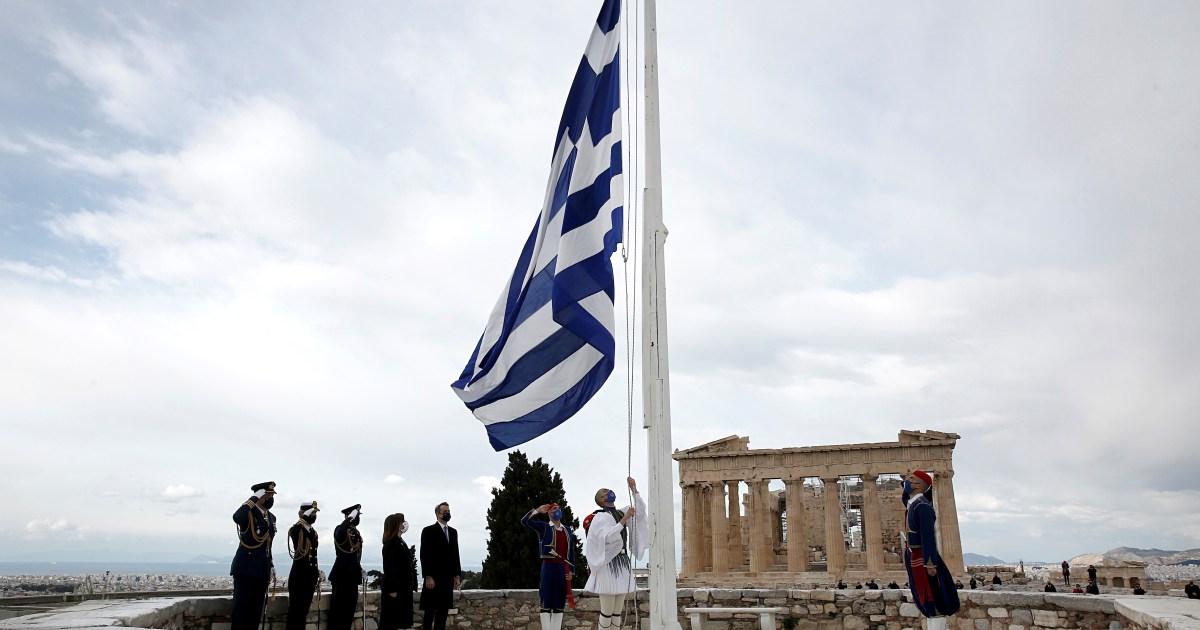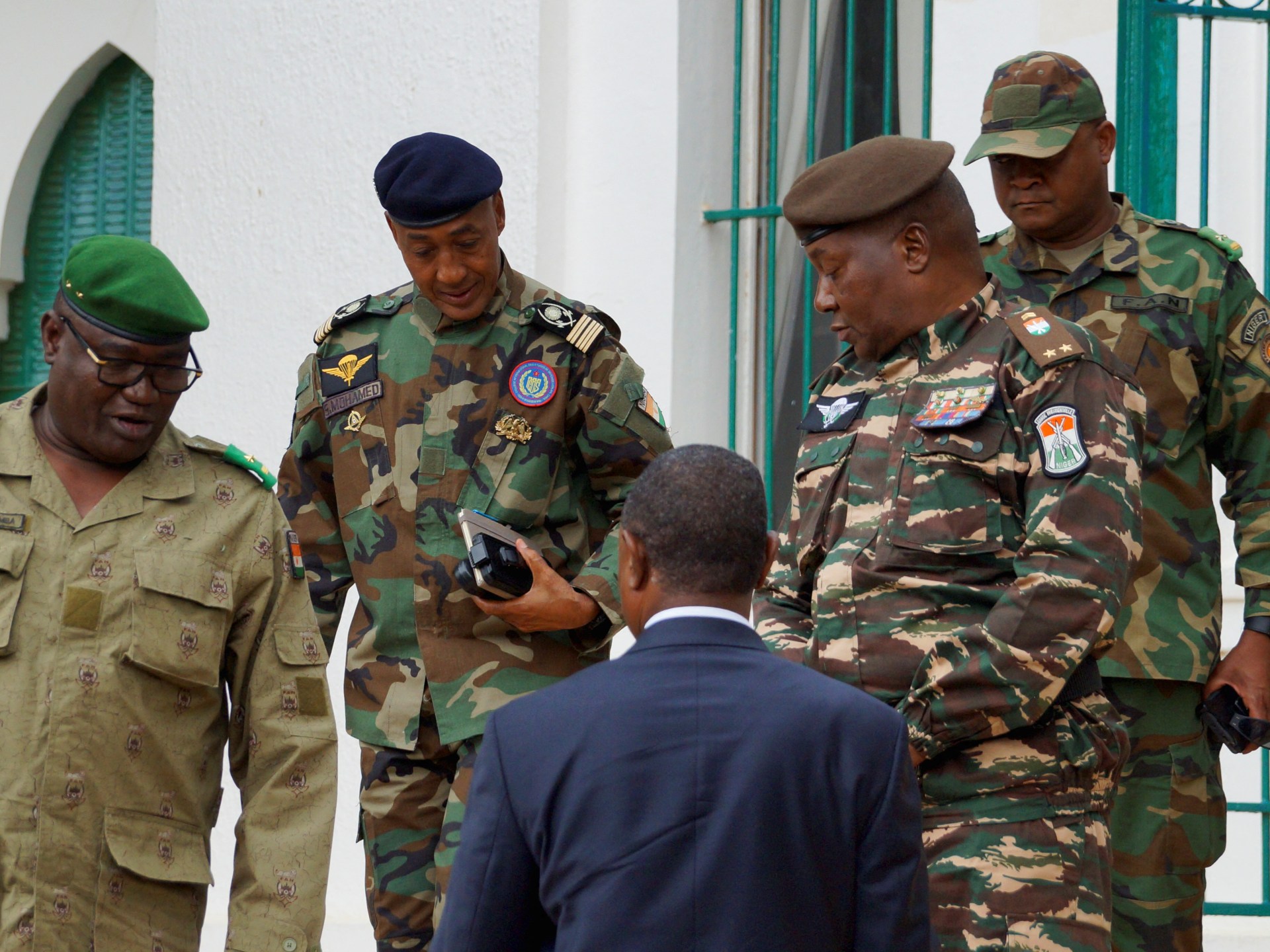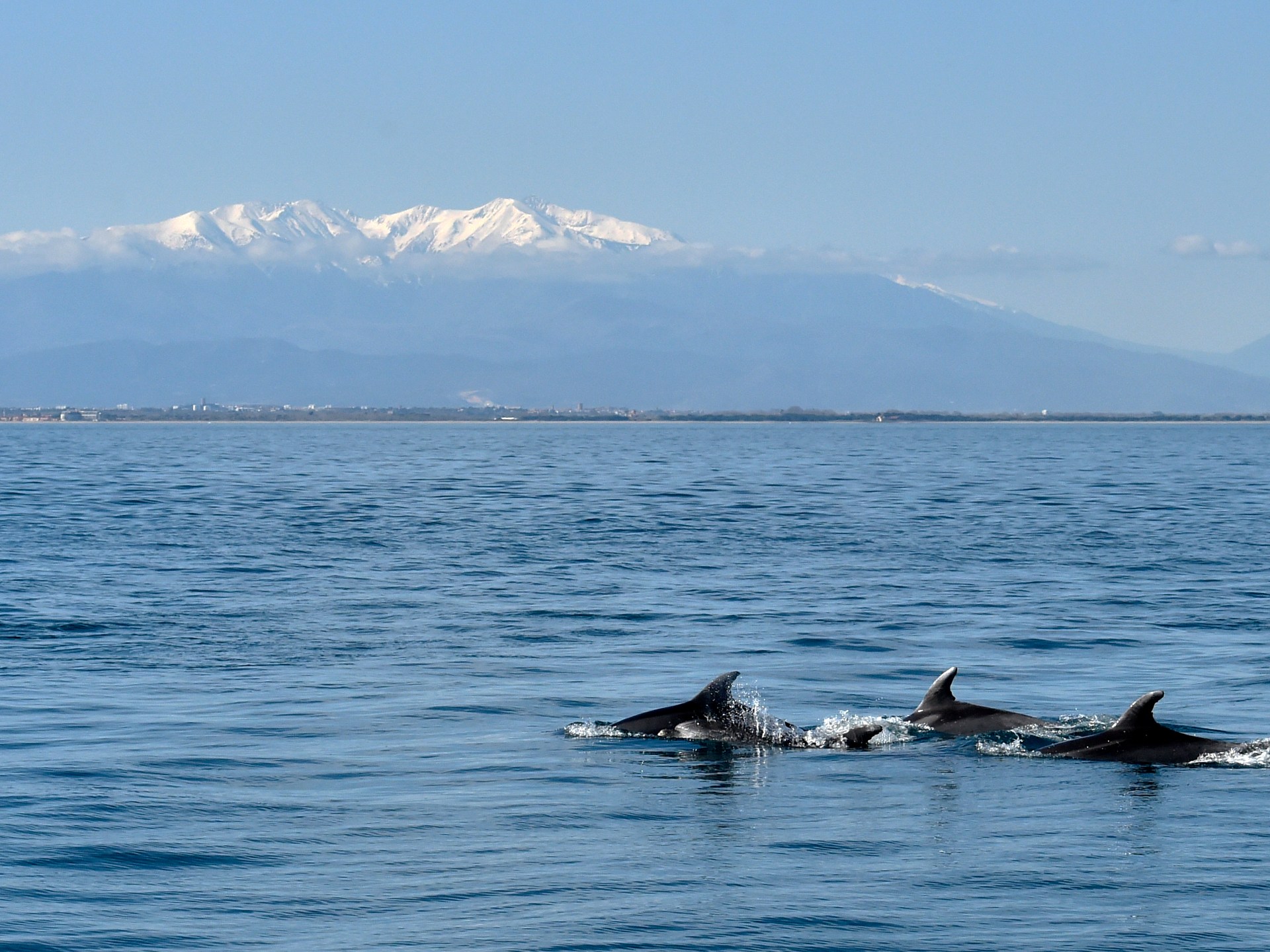Russia-Ukraine war stirs Greek concerns in the Mediterranean | Russia-Ukraine war News
Athens, Greece – Russian-Greek relations have taken a turn for the worse since Greece sent two planeloads of Kalashnikov rifles and ammunition to assist Ukraine.
Speaking in Greek Parliament on March 1, Prime Minister Kyriakos Mitsotakis called Russian President Vladimir Putin’s invasion of Ukraine a “clear violation” of the United Nations Charter in an attempt to “abolish the freedom of another country”.
The Russian embassy in Greece on Twitter called on “very senior politicians” to “come to their senses” and “stop anti-Russian propaganda”.
Maria Zakharova, Russia’s foreign ministry spokeswoman, called Greece’s decision to send weapons to Ukraine “deeply mistaken” and “criminal”, warning that “in the end, the weapons will be turned on civilians, including the Greeks”, a reference to 150,000 ethnic Greek Ukrainians mainly in Ukraine’s besieged cities of Mariupol and Odesa.
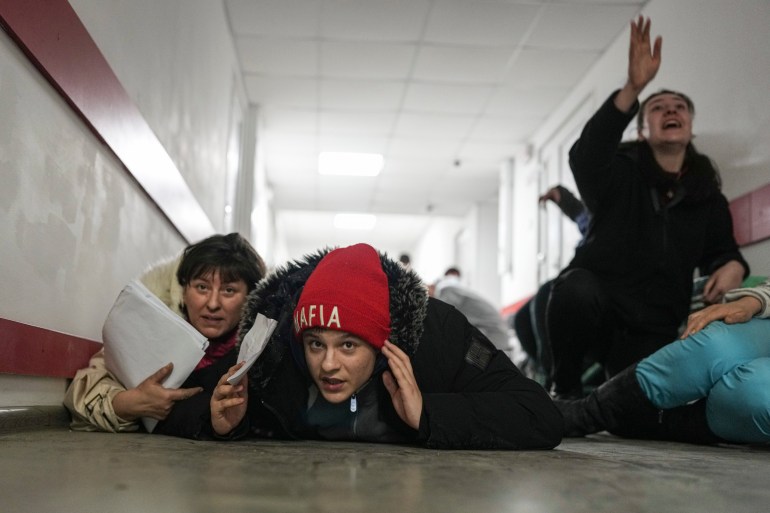
Russian Foreign Minister Sergey Lavrov caused alarm in Greece on February 21, when he drew a parallel between the Russian separatists fighting in Ukraine’s Donbas region, and the ethnic Turks of the self-proclaimed Turkish Republic of Northern Cyprus (TRNC).
“Look at Cyprus. The Turkish Republic of Northern Cyprus has been unilaterally proclaimed in the north. It refuses to abide by UN Security Council resolutions, but no one is denying the representatives of Northern Cyprus the right to be part of the dialogue,” Lavrov said, arguing that the Russians of Donbas should have had the same diplomatic privilege.
Protecting minorities
Turkey seized the northern third of Cyprus in 1974, in response to a coup that sought to annex the Mediterranean island to Greece, and has since established a state financially dependent on Ankara.
Both Turkey and Russia justify their invasions as protection for ethnic minorities.
“Putin considers that there is no Ukraine. [Turkish President Recep Tayyip] Erdogan doesn’t believe there is a Cyprus Republic,” said Deputy Education Minister Angelos Syrigos, who is an associate professor of international law.
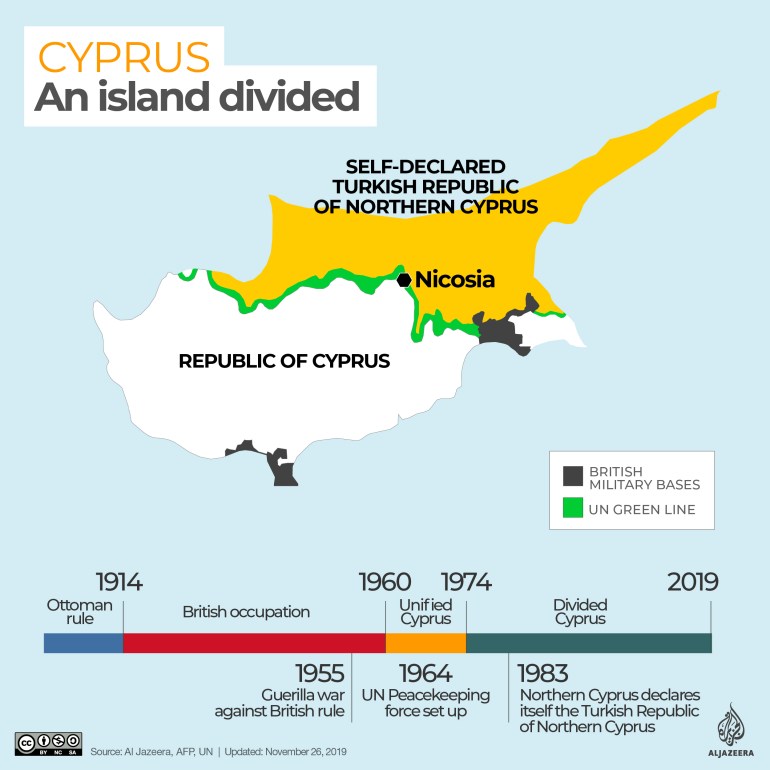
Lavrov’s reference to Northern Cyprus without the standard qualifiers “self-styled” or “so-called” raised concern over whether Russia was contemplating changing that position.
“If Russia has crossed the Rubicon to such an extent to even talk about the TRNC, which is illegally occupied for 48 years against UN Security Council resolutions and against the consistent position Russia has had for 48 years, I don’t know what to say,” Konstantinos Filis, who directs the Institute for Global Affairs at the American College of Greece, told Al Jazeera.
Turkey-Russia ties
Russia’s relations with Turkey are different. Turkey has not participated in sanctions imposed by the United States, the European Union and the United Kingdom against Russia, keeping its airspace open to Russian civilian airliners and maintaining trade and banking relations.
Russia has been courting Turkey in an apparent effort to weaken NATO, of which Turkey is a member.
In 2018, it persuaded Erdogan to buy S-400 surface-to-air missiles, which led the US to bar Turkey from buying its F-35 multirole combat jet.
Turkey has also facilitated the sale of Russian gas to Europe, becoming the landing point for the two Turkstream pipelines in 2019, which aim to deliver 130 billion cubic metres of Russian gas a year to southeast Europe.

Turkstream replaced Southstream, which was originally to land in Bulgaria. Strong US and EU pressure on the Bulgarian government led to the cancellation of Southstream in 2014.
Beyond the strategic collaborations between Russia and Turkey, Syrigos argued there also are other similarities between the two countries’ leaders.
“Putin regrets the dissolution of the Soviet Union and wants to recreate it. Erdogan regrets the dissolution of the Ottoman Empire and wants to revive it,” he said.
Syrigos also said as Putin demands demilitarisation of Ukraine, Erdogan demands demilitarisation of Greece’s eastern Aegean Islands, and recently questioned Greece’s sovereignty over them.
“Our islands cannot be demilitarised. They have to be armed to the teeth, to avoid tempting someone to enter … Erdogan’s takeaway [from Ukraine] is that ‘if I make a move, I’ll get slapped with some economic sanctions, but I’ll cut a deal’.”
Unity, sanctions
“The price for making an aggressive military move against a European sovereign democracy has just gone up – way up,” said Aristotle Tziampiris, professor of international relations at the University of Piraeus, a reference to onerous financial and trade sanctions imposed on Russia.
“The West invoked ideological weapons to fight Putin – international law, respect for borders, respect for sovereignty … it’s a confirmation of international rules. Turkey appears to go along with this,” said Panayotis Ioakeimidis, professor emeritus of European integration at the University of Athens.
He also said that Turkey did close the Bosphorus strait to Russian warships in accordance with the Montreux Convention of 1936 that governs them.
The difficulty of Russia’s progress in Ukraine is also a reminder to Erdogan that conquest is not cheap or quick, said Ioakeimidis.
The rising cost of energy is also a deterrent, say observers.
Turkey imports most of its energy and pays for it in dollars, but the country already suffers from 54 percent inflation – the highest in 20 years – due to Erdogan’s priority of maintaining low interest rates and cheap lending rates to businesses.
Greeks are acutely aware that the NATO alliance they both belong to did not prevent the seizure of Cyprus’s north in 1974.
Partly for this reason, Greece and Cyprus have traditionally topped Eurobarometer polls in favour of a common EU foreign and defence policy.
Common policies
Along with France, they have called for greater EU defence autonomy, but most EU members have been content to outsource security matters to NATO, partly for reasons of cost.
The Ukraine crisis now appears to have awoken a European security consciousness.
On February 27, German Chancellor Olaf Scholz announced his country’s armed forces would receive a one-off grant of 100 billion euros ($113bn) to re-equip and expand.
“The European Union and Germany realise that economic clout and soft power are not sufficient for security in the world of Putin,” said Tziampiris.
“Inevitably what you’re seeing is a move towards a greater European Union and European stance on military and defence spending. This is a revolution and it happened almost overnight. If Putin wanted to weaken the EU, it is going almost in the opposite direction.”

